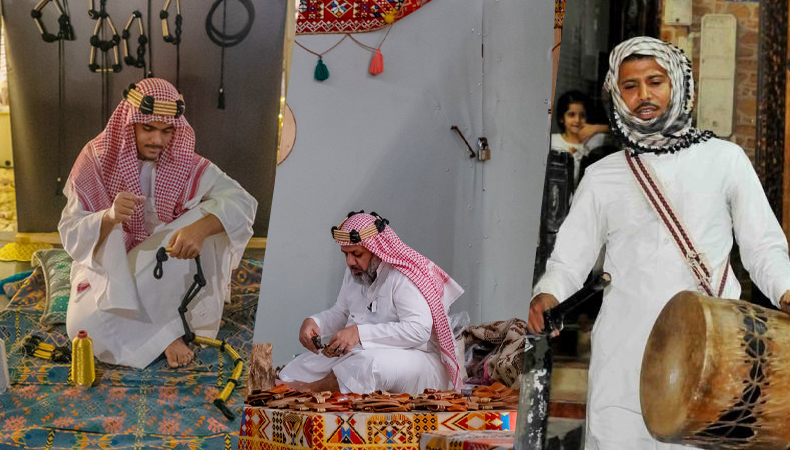Ramadan 2023: How Jeddah people are reviving the customs

One may hear the muted sounds of passersby and street merchants as they pass through Bab Jadid, one of Jeddah’s ancient gates and the northernmost entry to the city’s historic downtown district. One is gradually transported to a time and place where strong ties, kinship, and hospitality were the norm. As they grew louder with each step.
Older homes surround the walkway that leads to Al-Hazzazi courtyard, one of the area’s most active hubs. As you get further, the songs get louder and the decorations get brighter; pennants and banners in bright colors with the words “Ramadan Mubarak” or “Ramadan Kareem” written on them hang overhead.
Children rush through the crowds to buy traditional sweets to satisfy their sugar cravings, and people wait in line to eat “dirty potatoes” (as they are known in Saudi Arabia), which are topped with a variety of sauces.
Read | Outrage at Israeli restrictions on Easter church crowds in Jerusalem’s Orthodox churches
Couples stroll amicably as they purchase cold mixed berry juices from a woman wearing a traditional head wrap to satisfy their thirst after a long day of fasting, and Western visitors travel in large groups down narrow alleyways to the next lively courtyard.
In conclusion, the area, which is both a UNESCO World Heritage Site and one of the Kingdom’s most distinctive cultural centers, is awash in Hijazi flair. The Ramadan Season, organized by the Saudi Ministry of Culture, honors the cultural heritage of the holy month in more than 38 places in 14 Saudi cities.
This is expanded upon in the western Hijaz region of Saudi Arabia. The Roshan, large multi storey white-washed stone residences sprinkled with magnificent woodwork, and string lights lining the pathway give the location a local and humble vibe.
The cobblestone lanes show the signs of a city that has withstood the passage of time. The ninth month of the Islamic calendar, or Ramadan, is a holy month that encourages communities to join together and welcome newcomers.
One of the last Saudis remaining residing in the downtown area, Abu Abdul Aziz Diyab, said Arab News, “I would always find extra plates on a table at every iftar meal growing up.”




